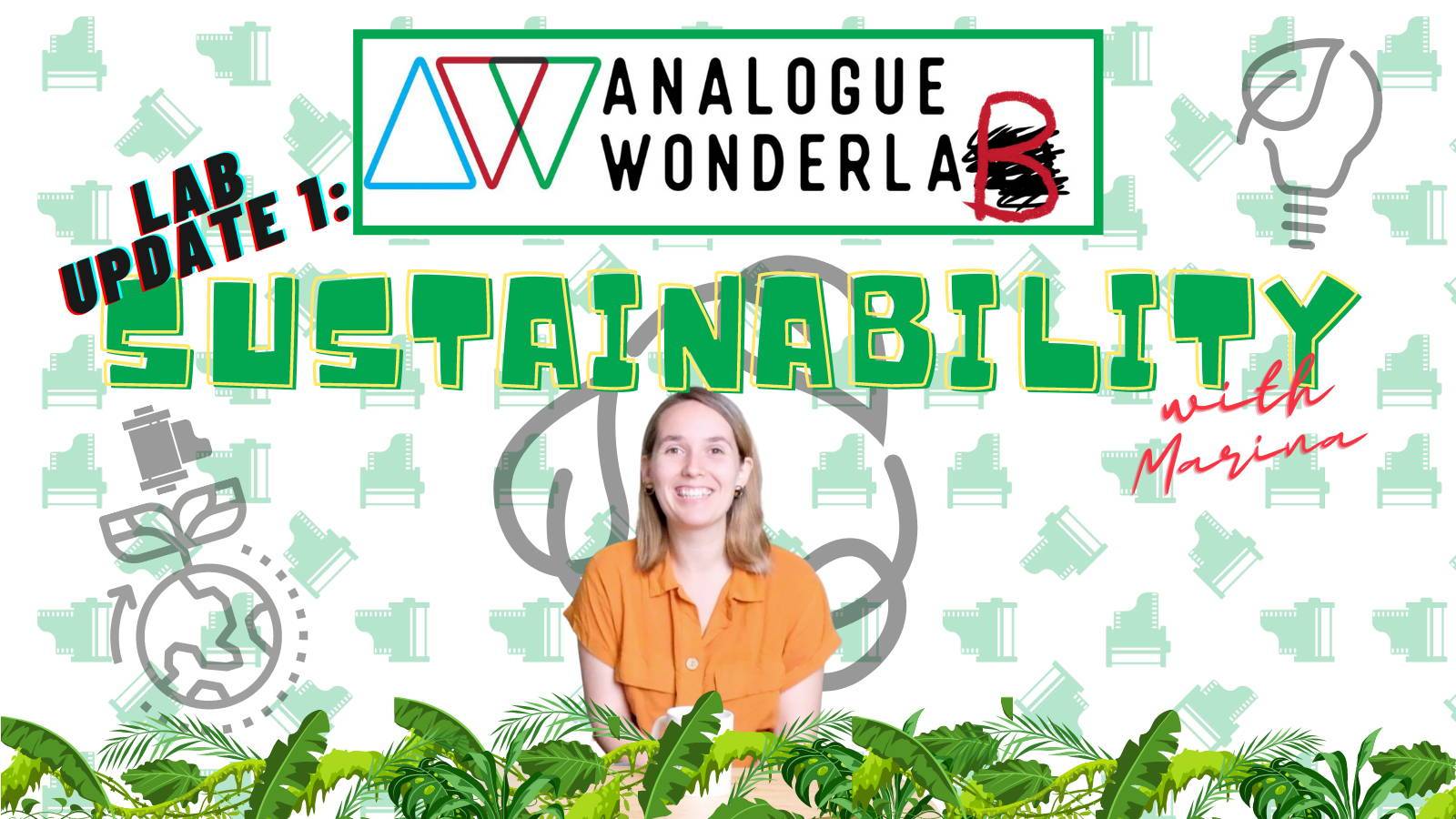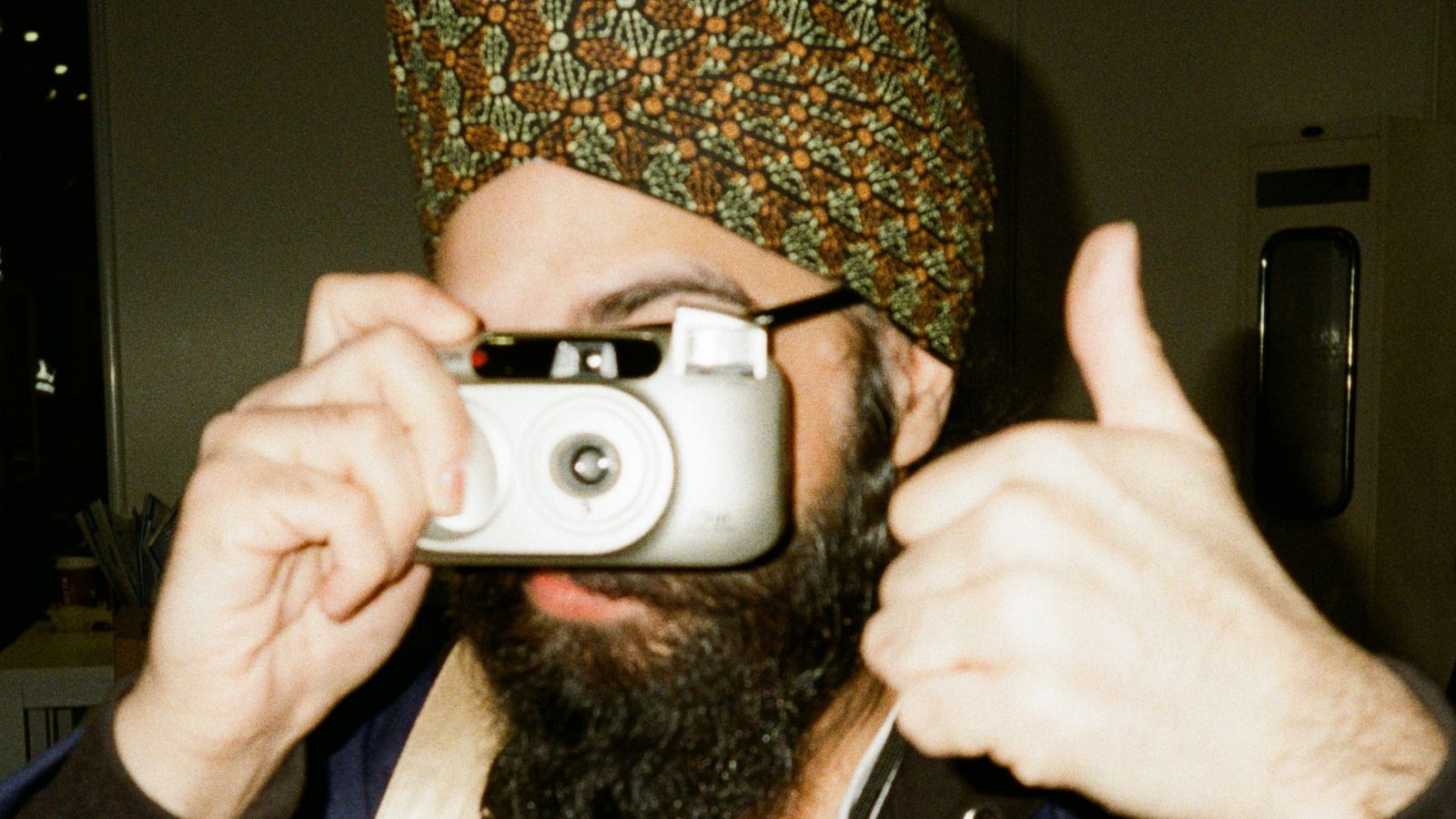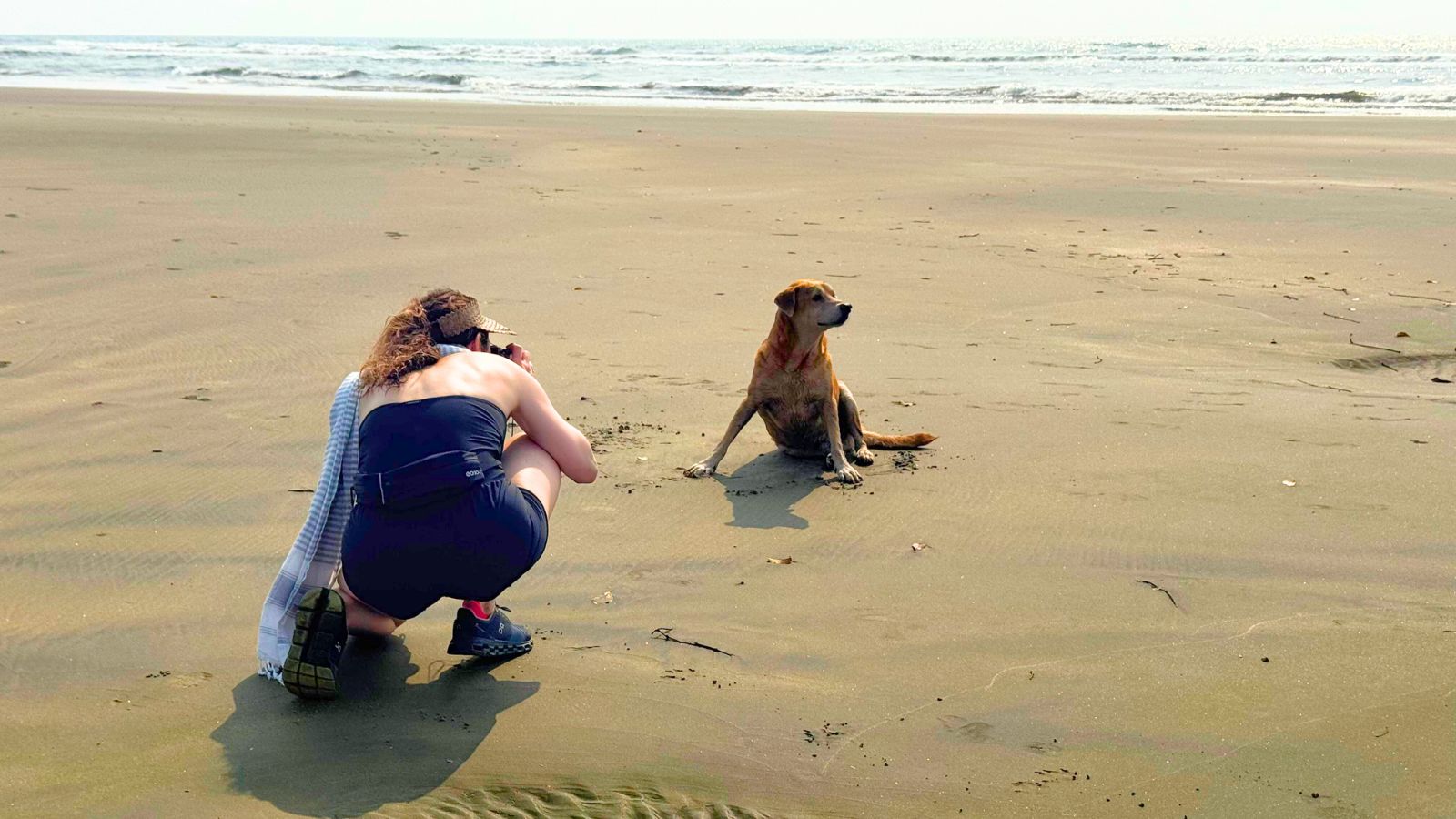
Analogue Wonderlab Update 1: Sustainability
By Marina Llopis
Hear from Marina herself all about her brilliant plans to make the Analogue Wonderlab as sustainable as possible! For a more in-depth chat check out our latest youtube video on our first lab update featuring a chat with Marina and Paul
[EDIT 20.08.21] - I've been told that Marina's experiences below are significantly less positive than the average for the UK industry. Which is brilliant news 😅 as it means that the UK community must have an open menu of labs who are already thinking about these things and finding solutions to the eco problems in our industry - hopefully leading the way for the wider global community. And at the WonderLab we will learn and implement all of these as well as add our own energies to the cause.
I can personally vouch for Digitalab, SilverPan and Take It Easy as labs that I've used for my own film, know the owners, and trust their philosophies - and a full up-to-date list of UK labs can be found on Facebook here
I'm sure that if you speak to your local lab and ask about their specific eco-practices then they'd be happy to share what they do 😊 and if you have any further thoughts, see an excellent solution, or come up with a brilliant idea to help move things forward then please tag us on social media or drop me an email!
- Paul
Hola! :) This is Marina from IFWEFILM, the one who is behind the creation of the new Analogue Wonderlab!
We are going to carry out a series of 3 articles in which we are going to explain you a bit more in detail about the 3 pillars on which this new lab is focused:
1- Sustainability
2- Organization
3- Community
Today in this article we are going to go into more depth about all the changes I want to make to reduce the impact of this process as much as possible. I warn you that in this particular article I have gone into a lot of detail so I recommend that before anything, go and get your cup of tea or coffee and pay close attention to what you are about to read 😊
Sustainability in the Photographic Film Industry
Look, we all know that analogue photography is not particularly sustainable - and this is a truth of most modern hobbies and lifestyles. Remember that the films are animal gelatine based to begin with, these films often come in plastic canisters or with plastic spools, we use chemicals to develop them and unfortunately many people - due to a lack of information - may be engaging in an unsustainable practice.
In addition to this, thanks to the experience of having worked for more than 7 years in different labs around the world (Japan, Spain and UK), it has made me realise that in many places, there are not very sustainable practices being carried out either. I could tell you many horrible stories but just to mention a few: irresponsibly throwing chemical waste down the drain, throwing mountains of disposable cameras, film pots, plastic spools, chemical containers into the normal rubbish, sending films wrapped with absurd amounts of plastic.... In short, a disaster!
There are several labs that are doing good practices but you would be surprised how many places are still committing irresponsibilities. That is why I personally have felt a strong duty to do something about these environmental problems happening inside photo labs.
We don't need to add to the plastic waste in the world!
Marina's Sustainability Goals
Now, before I go into the details, I would like to share with you my honest and humble view on this issue: my primary intention is to reduce the environmental impact as much as possible from start to finish, without compromising quality.
This is not to say that all these changes I want to implement will make this upcoming lab 100% sustainable. That seems to me to be a rather irresponsible thing to say on my part since in certain developing processes, I can’t use less toxic alternatives (I haven’t yet found a better alternative for developing C-41 colour and E6 positive colour).
What I do strongly believe though, and what I have experienced in my career, is that things can be done much better than they are currently being done and that is why I will be racking my brains to make analogue photography less harmful to the environment.
And now for the part many of you wanted to know, the details!
Not everything I'm going to mention will be implemented the first day the lab opens. First of all because there are things that I still have to investigate and resolve and secondly because time does not allow me to do so, so please you rather think that these changes will happen gradually.
Changes to make the Analogue Wonderlab more Sustainable
- We will recommend from the beginning on sending the films to the lab in a more sustainable way. This simply means that customers will be encouraged to reuse the boxes they already have and not to use plastic when sending them. (It may seem like an absurd detail, but you can't imagine the amount of unnecessary plastic that can reach the lab.)
- Use chemicals that contain components with the lowest possible level of toxicity. This means using chemicals that are free of hydroquinone, metol and sulphites.
- Create a system in which plastic film pots, 120 spools, and disposable cameras are returned to the production line. (This is going to be a tricky one but I know it is not impossible).
- Degrade the toxicity of the waste chemicals as much as possible before they are sent to a responsible disposal company. (Ideally I would love to be able to do this process in the lab and reuse the chemicals for something else but... I don't know if that's feasible yet, I hope so).
- Use fixers made from sodium thiosulphate instead of ammonium sulphate.
- Extending the life of the fixer by silver recovery. This silver recovery process could extend the life of the fixer by up to three times. That's more than 100 films that can be fixed without the need for the fixer to be discarded as soon as it is completely exhausted! (This particular point is still under development but thanks to the help of Francisco Ramirez, from the Film Library department of the University of Mexico, he will help me to replicate on a small scale a silver recovery machine that they use).
- Use more respectful packaging when shipping orders. It should be from recycled sources and be recyclable or biodegradable. This includes envelopes for negatives, negative sleeves and large envelopes for larger prints.
Marina plotting in the new Wonderlab Space!
Sustainability and Printing
And now we come to the last point which is the most contentious of all and the one where I really have absolutely no clear solution yet... The printing!
My ideal situation would be to be able to offer a printing service that is as sustainable as possible, without losing the quality offered by a professional printing system (wet lab or dry lab). This means that I want to use eco-friendly papers (e.g. that are made of cotton fibre) and plant-based inks that do not contain any toxic components.
This point, as I have already told you, is for me the most conflictive of all, there is hardly any information. That is why we are not going to offer the printing service for the first few months as I really don't want to give up on this and I would like to find a more sustainable and viable option for the workflow than printing full sets for individual rolls.
Anyway! As you know there are many things (and more to come 😁) I want to implement in order to make analogue photography even more enjoyable and to set a better example for future generations. I still have a lot of research to do but I know that what we are going to release at the beginning of September will be a big step towards the ideals of sustainability that I propose.
Wish me luck and speak soon!
Marina
Ready to dive in?
Keep Reading
View all
The new series: Analogue Adventures
Submit your personal Analogue Adventure - and if chosen we will work together to turn your experience into an article on our site and social posts on our account for posting with the analogue community!

Analogue Adventures: Nic in India
The first in our new series of community articles, find out how film photographer Nic got on with a Pentax 17 camera in India!

Another award for our lab: Photography News 2025!
We're delighted to share the news that our film lab has won the Editor's Choice award from Photography News for 'Best Processing Lab'!
Subscribe to our newsletter 💌
Sign up for our newsletter to stay up to date on film photography news, sales and events:
Free Tracked Shipping
On all UK orders over £50
Passion For Film
An unbeatable range and an on-site lab
Our Customers Trust Us
Thousands of independent 5* reviews
All Deliveries are Carbon Neutral
Independently audited and verified by Planet
- Opens in a new window.



